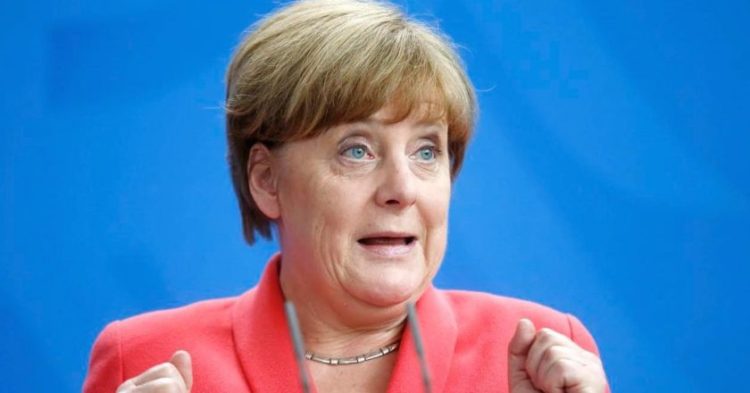By Aaron Miller-
German Chancellor Angela Merkel has criticized a motion proposed by the U.S for unilateral sanctions against Russia.
The sanctions are for alleged meddling in the U.S elections of 2016, a move that has alarmed Germany and France.
The concern is that the proposed new U.S sanctions against Russia could lead to European companies being fined, a government spokesman said on Friday. Retaliation may be on the cards.
First announced on Wednesday, U.S senators approved the sanctions against Russia over alleged meddling in the 2016 US election, including some on certain Russian energy projects. The move on Thursday was not coordinated with European Union allies.
PECULIAR
German government spokesman Steffen Seibert referred to the move as a ”peculiar” one, adding that German Chancellor, Merkel was in agreement with German Foreign Minister Sigmar Gabriel and Austrian Chancellor Christian Kern in a Thursday joint statement. Seibert stated:
“The US Senate’s decision raises exactly the same questions for her as it did for Mr Kern and Mr Gabriel. It is, putting it mildly, a peculiar move by the US Senate,” Seibert told reporters.
Seibert expressed surprise that sanctions intended to punish Russia for alleged interference in the US elections could have a detrimental effect against European companies.
“That must not happen,” he said. “We generally reject sanctions with extra-territorial effects, meaning an impact on third countries,” Seibert stated.
The new anti-Russian sanctions were taken from an amendment to a bill designed to impose sanctions against Iran. It was approved by the US Senate on Thursday, but requires the stamped approval of the House of Representatives, and the signature of the US president.
TARGET
Particularly targeting companies cooperating with Russian oil and gas companies, the bill will strain relations between the U.S and Russia if it becomes law.
President Trump has never accepted the allegation that Russia meddled in the U.S election that led to his presidency, making any endorsement of that bill point to a tacit admission of the allegation. The plan currently lacks legitimacy, bearing in mind the ongoing investigation into the allegation which has not yet been concluded.
On Thursday, German Foreign Minister Sigmar Gabriel and Austrian Chancellor Christian Kern lambasted the bill, saying in a joint statement that ”Europe’s energy supply is a matter for Europe, and not the United States of America!”
The move also ignores the expected integrated action between America and Europe on any sanctions against Russia. Economy Minister, Brigitte Zypries, criticized Washington for plans to go alone with such measures, warning of possible counter-measures in the event of German companies being fined.
“I regret that the joint approach of Europe and the United States on Russia and sanctions has been undermined and abandoned in this way,” Zypries told Reuters. The proposals for Sanctions against Russia for the reasons declared is odd, and begs the questions whether it has already been discussed with President Trump.
It also can be construed as an attempt by the Senate to impose on President Trump the view that Russia need interfere unlawfully in the elections that put him in power. This will be very difficult for Trump to do, it may lead to further internal disputes among the Republicans.




